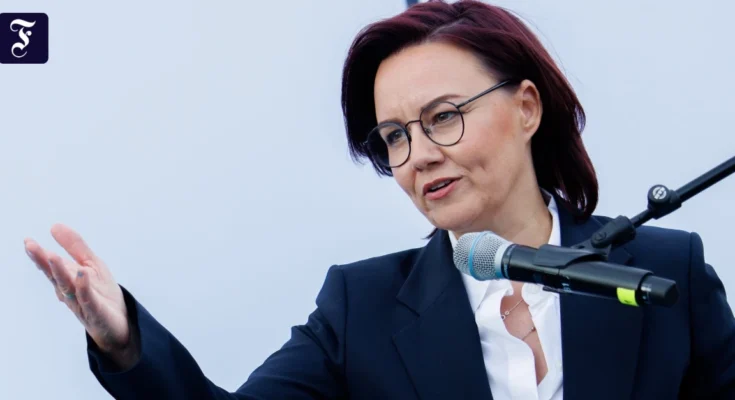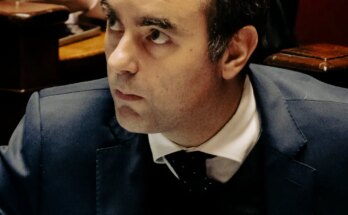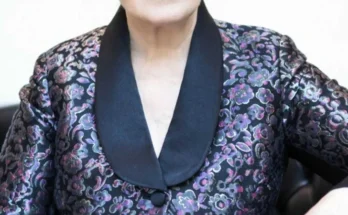German film and television producers are pampered. Or more precisely: Its main association, the Production Alliance, is. They are used to the federal government directing film funding according to their wishes. This became apparent during the traffic light coalition, when then alliance leader Björn Böhning pushed Minister of State for Culture Claudia Roth in front of him and gave the impression that laws were not made in the ministry, but in the lobbyist’s office.
The traffic light coalition is history, Claudia Roth sits with the Green Party in the Bundestag, Björn Böhning (SPD) has moved to the Ministry of Finance as State Secretary. His successor Michelle Müntefering, who sat in the Bundestag for the SPD until the spring (political appointments are common in production alliances), continued Böhning’s spirit and still finds him hilarious.
32 associations protested, but one association withdrew
“Only legally regulated investment obligations create transparency, reliability and fairness in international competition,” he wrote in a list by Minister of State for Culture Wolfram Weimer. What he means is that international streaming platforms such as Netflix are legally obliged to invest in local film and series production. The coalition agreement also regulates this.
Wolfram Weimer now leans more towards voluntary commitment. This is not enough for the producers and 31 other associations who have voiced a joint protest (“legislation, not sales”). They want laws.
To make this clear to everyone, the production alliance has circulated a poster showing three AI-processed men reminiscent of Wolfram Weimer, Federal Chancellor Friedrich Merz, and Finance Minister Lars Klingbeil. This can be seen in the title “Broken Promises? – Broken Promises?” looks like a cinema ad and is not meant to be confrontational, but rather a “respectful” reminder. “The goal of this campaign” is not “a scandal, but a happy ending.”
This seems a bit hypocritical to us. The law creates more transparency than any voluntary commitment, and compliance with it must also be monitored. But the association failed to realize that in cases like this, German media policy must not only reach consensus within the government coalition and the Bundestag, but must also involve the federal states and respect the interests of those affected. He is running against Donald Trump. The Trump administration fights any legislation that imposes obligations on US companies with force and uses its weapons of blackmail, including punitive tariffs or withdrawal from NATO. And there is one more thing that is a blind spot for investment law advocates.
The Association of Technical Companies for Film and Television (VTFF), which did not sign the joint protest note, drew attention to this: The investment obligation – under EU law – creates a “sale of the production somewhere in Europe”, but not necessarily in Germany. But here, these companies are starved and let down by streamers and broadcasters (including and especially public broadcasters) who prefer to produce abroad.
“The streamers must return! ARD and ZDF must focus on Germany,” wrote VTFF boss Achim Rohnke. That’s why we’re calling on streamers and broadcasters to make a voluntary commitment to production in the country. Other associations do not have this aspect in their lists. Or don’t want it there.



